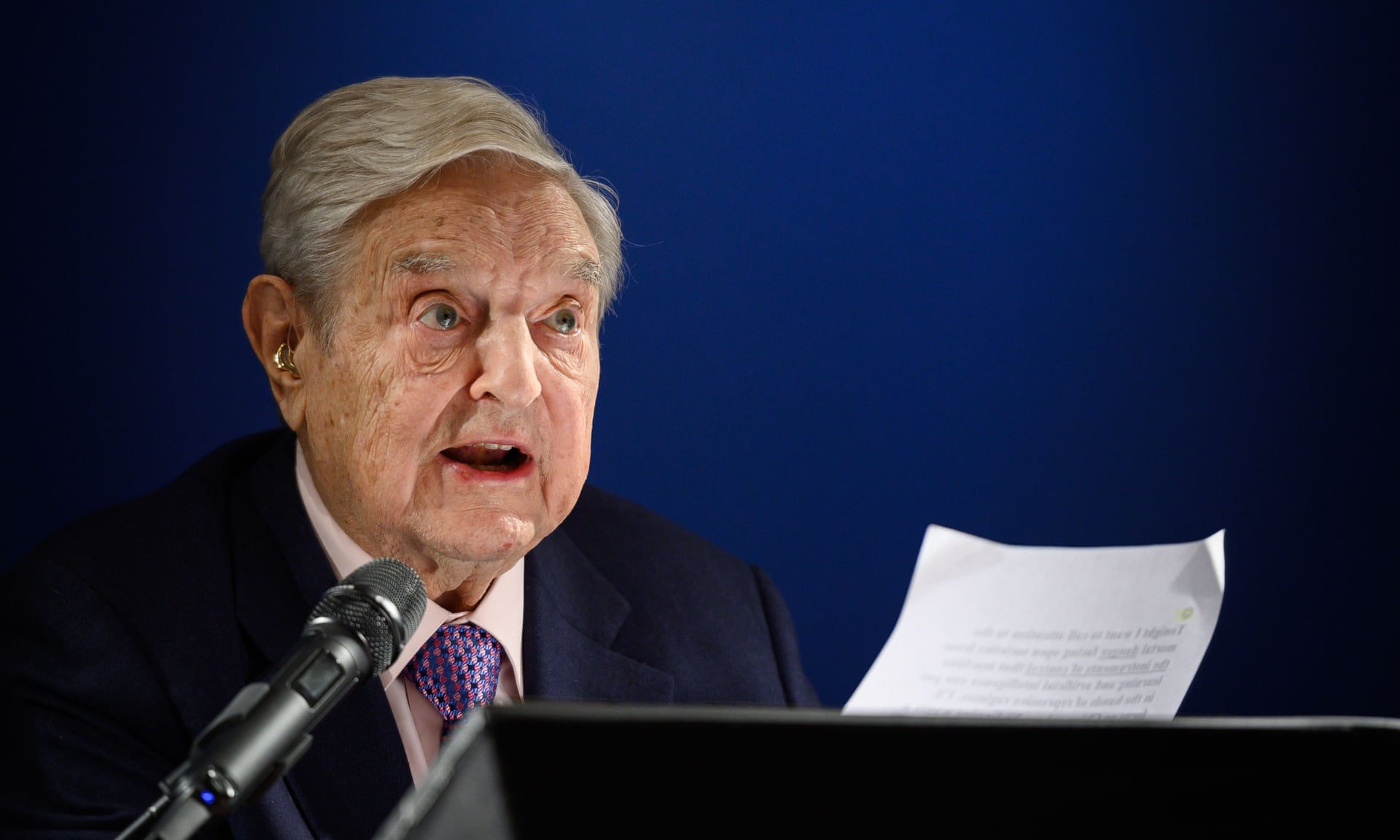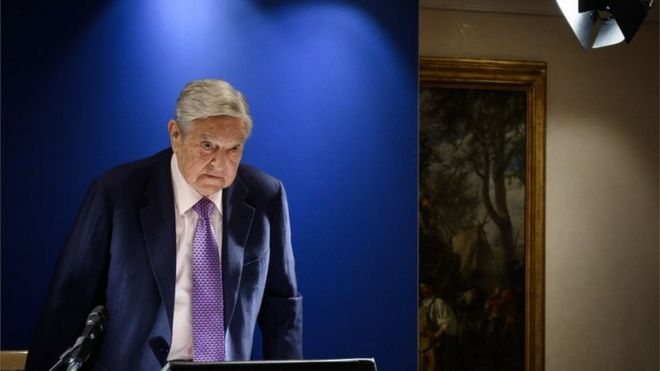Artificial intelligence and machine learning are being used for authoritarian control
By Larry Elliott in Davos
George Soros delivers a speech at his dinner at the World Economic Forum in Davos, Switzerland.
The billionaire philanthropist George Soros has delivered a stinging attack on China with a warning that Xi Jinping’s regime is using breakthroughs in machine learning and artificial intelligence to repress its people.
Soros used his annual dinner at the World Economic Forum to say Xi was the most dangerous opponent of open societies and to call on the west to crack down on Chinese tech companies that were being used as a means of authoritarian control.
“I want to call attention to the mortal danger facing open societies from the instruments of control that machine learning and artificial intelligence can put in the hands of repressive regimes. I’ll focus on China, where Xi Jinping wants a one-party state to reign supreme,” Soros said.
The former hedge fund dealer said that in China all “the rapidly expanding information available about a person is going to be consolidated in a centralised database to create a ‘social credit system’.
“Based on that data, people will be evaluated by algorithms that will determine whether they pose a threat to the one-party state. People will then be treated accordingly.”
China, he added, was not the only authoritarian regime in the world, but it was the wealthiest, strongest and most developed in machine learning and AI.
Soros said there was an undeclared struggle between the west and China over governance of the internet.
“Based on that data, people will be evaluated by algorithms that will determine whether they pose a threat to the one-party state. People will then be treated accordingly.”
China, he added, was not the only authoritarian regime in the world, but it was the wealthiest, strongest and most developed in machine learning and AI.
Soros said there was an undeclared struggle between the west and China over governance of the internet.
China wanted to dictate rules and procedures that governed the digital economy by dominating the developing world with its new platforms and technologies.
“Last year I still believed that China ought to be more deeply embedded in the institutions of global governance, but since then Xi Jinping’s behaviour has changed my opinion,” he said.
“Last year I still believed that China ought to be more deeply embedded in the institutions of global governance, but since then Xi Jinping’s behaviour has changed my opinion,” he said.
“My present view is that instead of waging a trade war with practically the whole world, the US should focus on China. Instead of letting [the Chinese tech companies] ZTE and Huawei off lightly, it needs to crack down on them.
“If these companies came to dominate the 5G market, they would present an unacceptable security risk for the rest of the world.”
Soros said Trump was taking the wrong approach to China: making concessions to Beijing and declaring victory while renewing his attacks on US allies.
“This is liable to undermine the US policy objective of curbing China’s abuses and excesses. The reality is that we are in a cold war that threatens to turn into a hot one.”
“If these companies came to dominate the 5G market, they would present an unacceptable security risk for the rest of the world.”
Soros said Trump was taking the wrong approach to China: making concessions to Beijing and declaring victory while renewing his attacks on US allies.
“This is liable to undermine the US policy objective of curbing China’s abuses and excesses. The reality is that we are in a cold war that threatens to turn into a hot one.”




